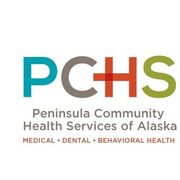5 Smart Tricks for Managing Your Medications

If your doctor has prescribed a number of medications to help you manage a health condition, it’s important to make sure you take them exactly as directed. Yet, when you’re balancing other day-to-day responsibilities, it’s easy to lose track of which medications you’ve taken and when. To help you maintain a hassle-free routine, here are some simple tips for managing your medications.
5 Practical Tips for Managing Medications
1. Use a Pill Organizer
Pill organizers are convenient containers which can be purchased at any drug store. They offer separate slots for each day of the week, so you can set aside an entire week’s worth of pills every Sunday. This will help you prevent mistakenly doubling up on any dosages.
2. Create a Spreadsheet
In addition to using a pill organizer, you can also stay on track with your doses by using a spreadsheet to keep track of all your medications. Use a program like Microsoft Excel to create a sheet with medication names and dosages. Print the sheet out and check off each medication as you take it. You can also go back and edit the file any time your doctor changes a certain prescription or dosage.
3. Set a Daily Alarm
Many individuals rely on a daily alarm to help them remember to take their pills every day. If you have a smartphone, you can set up a recurring reminder at the same time every day for consistent practices. Or, simply set a regular alarm clock to stay on track.
4. Mark Your Calendar
 If you’re running low on prescription refills, you may need to see your doctor for a follow-up visit before they can prescribe more. Likewise, prescriptions sometimes need a little extra time to prepare certain medications. Mark the dates when your prescriptions will run out on your calendar, and be sure you give yourself plenty of time for refills by scheduling appointments well in advance.
If you’re running low on prescription refills, you may need to see your doctor for a follow-up visit before they can prescribe more. Likewise, prescriptions sometimes need a little extra time to prepare certain medications. Mark the dates when your prescriptions will run out on your calendar, and be sure you give yourself plenty of time for refills by scheduling appointments well in advance.
5. Check Prescription Labels
Chances are you’ll use your medications long before they expire, but it’s still a good idea to take note of expiration dates as soon as you pick them up from the pharmacy. Your label may also provide instructions for taking medications with or without food and proper storage. You may need to have a separate pill organizer for refrigerated medications, for example. Consider including any special instructions on your spreadsheet as well.
Of course, part of effective medication management is working with a communicative doctor who takes the time to answer questions you may have about side effects, interactions, and any other concerns. You can rest assured that each medical practitioner at Peninsula Community Health Services in Soldotna, AK, will oversee your health care needs and provide tailored treatment options that work for you. Browse through their full list of care options online or call (907) 262-3119.
About the Business
Have a question? Ask the experts!
Send your question

